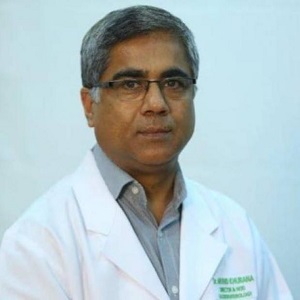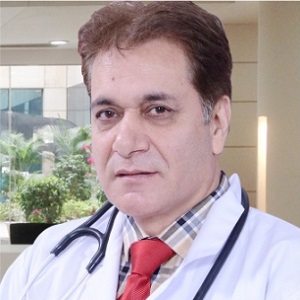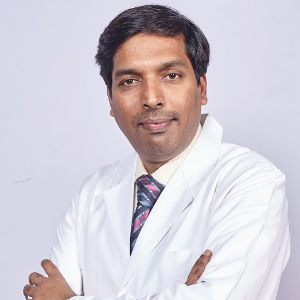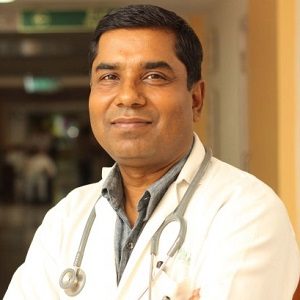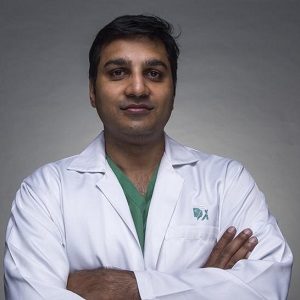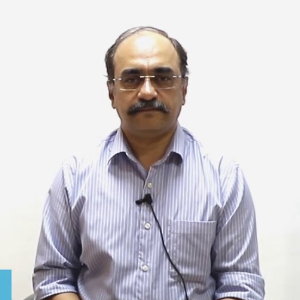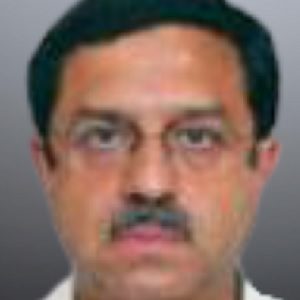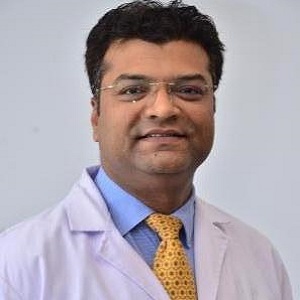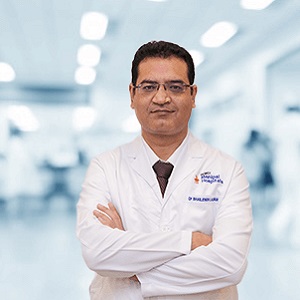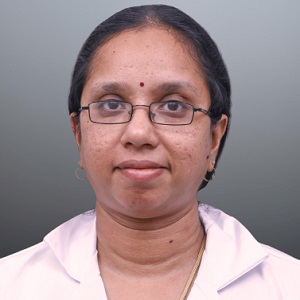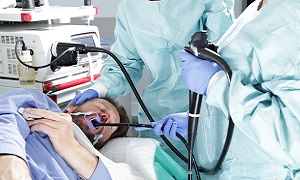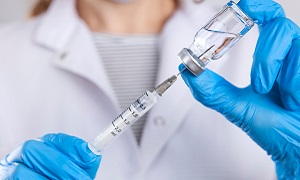Best Doctors in India for Achalasia Treatment
- Gastroenterologist, Gurugram, India
- Over 33 years’ experience
Profile Highlights:
- Dr. Arvind Kumar Khurana is a well-known name in the field of gastroenterology and has a keen interest in Gastroenterology, Hepatology, Endoscopy, Onco-Gastroenterology, and Endoscopic Ultrasound.
- Dr. Khurana has successfully performed over 1,50,000 Endoscopic procedures, including over 20000 cases of EPT/CBD stones removal & Biliary Stenting, 2000 metallic stenting, 950 cases of foreign body removal, and 2000 PEG cases.
- Gastroenterologist, Gurugram, India
- Over 17 years’ experience
Profile Highlights:
- Dr. M A Mir is a well-known Gastroenterologist and Endoscopist with a vast experience of more than 17 years in the field of Gastroenterology.
- Before joining Artemis Hospital he was associated with Pushpawati Singhania Research Institute for Liver and Digestive Diseases, New Delhi as a Consultant Gastroenterologist and Endoscopist.
- He is experienced in all gastrointestinal procedures such as diagnostic and therapeutic upper and lower GI endoscopies.
- Liver Transplant & HPB Surgeon, Gurugram, India
- Over 20 years’ experience
Profile Highlights:
- Dr. Ajitabh Srivastava is a reputed HPB and Liver Transplant surgeon in India.
- He has been a key member of teams that performed over 1500 liver transplants including living donors, deceased donors, pediatric transplants, and combined liver and kidney transplants.
- He is an expert in other complex procedures involving hepatobiliary surgery, combined liver, and Kidney Transplant, and vascular access surgery.
- Gastroenterologist & Hepatologist, New Delhi, India
- Over 30 years experience
Profile Highlights:
- Dr. Amitabha Dutta is a renowned Gastroenterologist and Hepatologist with 10 years of experience as a specialist. He has more than 30 years of professional experience in gastroenterology and general medicine.
- After practicing for 10 years in the UK, Dr. Dutta relocated to India and joined Apollo Hospitals in 1995. He was the one to set up the Gastroenterology department at Apollo Hospital, and he continues to work as a senior consultant in the Department of Gastroenterology and Hepatology at Indraprastha Apollo Hospital.
- Dr. Amitabha Dutta offers non-surgical treatment for various issues ranging from piles, skin tags, and acidity to Ulcerative Colitis and the current Coronavirus outbreak.
- He got MRCP certification from The Royal College of Physicians Of Ireland.
- Surgical Gastroenterologist, Liver Transplant Surgeon, New Delhi, India
- Over 18 years experience
Profile Highlights:
- Dr. Neerav Goyal is one of the best Liver transplant surgeons in India. He is the Head of the Apollo Liver Transplant, Hepatobiliary, and Pancreatic Surgery unit in New Delhi.
- Dr. Neerav Goyal is providing the best care to patients with Hepatectomy/ liver transplant in case of liver cancer or liver cirrhosis, surgeries for pancreatic cancer, etc.
- He is a Gold Medalist practitioner who performs complex surgeries with success.
- Dr. Goyal has performed over 2100 liver transplants in his 18 years of experience. This also includes 500+ cadaver liver transplants and 220 pediatric liver transplants.
- Gastroenterologist and Hepatologist, New Delhi, India
- Over 24 years’ experience
Profile Highlights:
- Dr. Abhishek Deo is one of the finest Gastroenterologists and Hepatologists in India with an outstanding experience of over 24 years.
- His clinical proficiency lies in the field of Gastroenterology, Liver Disease, Diagnostic Therapeutic Endoscopy, and Advanced Therapeutic Endoscopy procedures.
- After completing the initial 14 years of working hand-in-hand with the top gastroenterologists in UK, he returned back to India in 2010 and started his practice in Gastroenterology and General Medicines.
- Medical Gastroenterologist, Hepatologist, New Delhi, India
- Over 35 years experience
Profile Highlights:
- Dr. Sanjay Sikka is a general physician who specializes in medical gastroenterology. He is a gastroenterologist and hepatologist with over 32 years of experience in liver disease, therapeutic endoscopy, and gastrointestinal consultations.
- Dr. Sikka is practicing as a senior consultant in the Gastroenterology department at Indraprastha Apollo Hospitals, New Delhi.
- Being Professor at the GSUM Medical College in Kanpur, Dr. Sanjay Sikka was also involved in scholarly activity. He has several papers that appeared in numerous national and international periodicals.
- Liver Transplant Surgeon & HPB Surgeon, New Delhi, India
- Over 20 years’ experience
Profile Highlights:
- Dr. Bhushan Bhole is a well-known Liver Transplant Surgeon & HPB Surgeon who has done Advanced Fellowship in Liver Transplantation & Fellowship in Advanced Laparoscopic Surgery, in Birmingham, UK.
- He is an active member of several national surgical associations such as ASI, IASG, IHPBA, ACRSI, MAS, IAGES, IHA & IMA. He has also been awarded many fellowships like FACRSI, IAGES & FMAS.
- Liver Transplant Surgeon & HPB Surgeon, New Delhi, India
- Over 19 years’ experience
Profile Highlights:
- Dr. Shailendra Lalwani is a renowned gastroenterologist at Manipal Hospitals, Dwarka, New Delhi, who has over 19 years of experience as a specialist. His expertise lies in Liver Transplantation and Hepato-pancreatic biliary surgery.
- For his outstanding contributions to the field of gastroenterology, Dr. Shailendra Lalwani has been honored with several awards and recognition. He is also an active member of the Delhi Medical Council.
- Gastroenterologist, Chennai, India
- Over 13 years’ experience
Profile Highlights:
- Dr. M Tarakeshwari is a well-known gastroenterologist who provides various services to her patients and is an expert in cytokines in IBS, treating Hepatitis B in pregnancy as well as renal failure in Cirrhosis.
- Some of the services provided by the Dr. M Tarakeshwari are: Acidity Treatment, Gallbladder (Biliary) Stone Treatment, Bladder Cancer Surgery, Inflammatory Bowel Disease (IBD) Treatment Ulcerative Colitis Treatment, etc
Best Hospitals in India for Achalasia Treatment
Rela Hospital, Chennai
- City: Chennai, India
Hospital Highlights:
- RIMC is a multi-specialty hospital in a sprawling area of 36 acres located in Chromepet, Chennai, Tamil Nadu, India.
- The facility has 450 beds including 130 critical care beds, 9 operating rooms, modern reference laboratories and radiology services, and is conveniently located near road, rail and air transportation.
- RIMC is led and managed by world-renowned physicians committed to healthcare.
- RIMC offers the broadest range of clinical care, education, and research. The hospital offers state-of-the-art technology and modern treatment facilities designed to provide health care at an affordable cost.
- Rela Institute is driven by patient needs, comfort and confidence.
CARE Hospitals, Hyderabad
- City: Hyderabad, India
Hospital Highlights:
- CARE Hospitals were established in the year 2000, by CARE Group.
- The multispecialty hospital has 435 beds, including 120 critical care beds, with an annual inflow of 180000 outpatients and 16,000 in-patients.
- The hospital provides specialty medical services in Cardiology, Cardiothoracic Surgery, Pediatric Cardiology, Pediatric Cardiothoracic Surgery, Neurology, Neurosurgery, Nephrology, and Urology.
- The hospital has the first dual source, 128 slice CT scanner (for high precision cardiac imaging) – the first of its kind in south India.
- The hospital offers a wide range of accommodation facilities for the convenience of its varied patient base, ranging from general wards to super deluxe rooms.
Fortis Hiranandani Hospital, Mumbai
- City: Mumbai, India
Hospital Highlights:
- Fortis Hiranandani hospital was established in 2007.
- The hospital is an advanced tertiary care, multi-specialty hospital equipped with 149 beds.
- The hospital is equipped with a super ICU to provide emergency medical care to critically ill patients.
- The hospital is NABH accredited.
- The critical care facility in the hospital is augmented with the state-of-the-art facilities that facilitate speedier diagnosis and efficient monitoring.
- The hospital provides specialty medical services in cardiology, orthopedic science, pediatric science, neurology, diabetic care, urology, nephrology, ENT, obstetrics, gynecology, cosmetic surgery, bariatric surgery, neuro and spine care.
Fortis Hospital, Anandpur, Kolkata
- City: Kolkata, India
Hospital Highlights:
- Fortis Hospital, Anandapur, Kolkata is a world-class super-speciality equipped with the latest technologies in the medical world.
- The hospital is NABH accredited.
- This state-of-the-art facility specializes in cardiology and cardiac surgery, urology, nephrology, neurosciences, orthopaedics, digestive care, emergency care and critical care.
- The hospital, governed by integrated Building Management System (IBMS), has a pneumatic chute system, for quick vertical and horizontal transportation between floors, facilitating speedy transfer of patient specimens, documents, reports, and medicines to the concerned departments.
- The hospital also has a nephrology department with over 28 advanced dialysis units.
Fortis Hospital Banerghatta, Bengaluru
- City: Bengaluru, India
Hospital Highlights:
- Fortis Hospital Bannerghatta, Bengaluru was established in 2006.
- The hospital is a 276 bedded multi-specialty tertiary care facility.
- The hospital specializes in cutting-edge medical technology and dedicated patient care services.
- The hospital is equipped with state-of-the-art technologies like trans-radial angioplasty, trans-abdominal cardiac surgery, and computerized TKR navigation surgery.
- The hospital provides specialty medical services in cardiology, cardiac surgery, orthopedics, neurology, neuro-surgery, GI, and Minimal Access Surgery (MAS).
Gleneagles Global Hospital, Parel, Mumbai
- City: Mumbai, India
Hospital Highlights:
- Gleneagles Global Hospital The 450-bed facility comprises of 17-stories, housing state-of-the-art infrastructure, and advanced medical care facilities.
- The hospital offers end-to-end clinical, surgical, and diagnostic services. It is equipped with a team of eminent medical professionals aided by qualified nurses and medical staff
- The Hospital offers advanced Endoscopic procedures, Hepatobiliary and Liver Surgeries, Surgical and Medical Gastroenterology, Bariatric Surgery, and Robotic surgery.
- The hospital is a center of excellence for Orthopedics, Joint Replacement, Knee Replacement, and Hip Replacement surgery.
Jaypee Hospital, Noida
- City: Noida, India
Hospital Highlights:
- Jaypee Hospital is the flagship hospital of the Jaypee Group.
- This hospital has commissioned 525 beds in the first phase and has been planned and designed as a 1200 bedded multi-specialty facility.
- It holds the accreditation of the NABH and NABL.
- The hospital has state-of-the-art infrastructure equipped with the latest technologies and modern equipment like 64 Slice PET CT, Dual Head 6 Slice SPECT CT, Gamma Camera, and Da Vinci Robotic Surgery for comprehensive robotic surgical solutions.
- It has special Centers dedicated to the major specialties to provide hassle-free and high-quality clinical care.
Manipal Hospital, Dwarka, Delhi
- City: New Delhi, India
Hospital Highlights:
- Manipal Hospitals, Dwarka, is a super-specialty hospital in Dwarka, New Delhi, which is a part of Manipal Hospitals Group.
- The hospital aims to provide the best treatment on par with international standards at a fraction of the cost.
- Equipped with 380 beds, the hospital is also one of the new age hospitals which are equipped fully with state-of-the-art infrastructure, cutting-edge technology as well as the latest and advanced clinical practices. The hospital also has 13 modular Operation theatres with 118 beds which are solely meant for critical care.
- The hospital comprises internationally acclaimed doctors and highly professional and experienced hospital and medical staff who are able to provide preventive, therapeutic, and diagnostic services all under one roof.
Paras Hospital, Gurugram
- City: Gurugram, India
Hospital Highlights:
- Paras hospital was established in 2006 and is the 250 bedded flagship hospital of Paras Healthcare.
- The is supported by a team of doctors of international and national repute.
- The hospital is NABH accredited and also the first hospital in the region to have a NABL accredited laboratory.
- The hospital provides specialty medical services in around 55 departments including Neurosciences, Joint Replacement, Mother & Child Care, Minimal Invasive Surgery, Gynecology and Obstetrics, Ophthalmology, Dermatology, Endocrinology, Rheumatology, Cosmetic and Plastic surgery.
- The hospital is equipped with state-of-the-art technologies.
S L Raheja Hospital, Mahim, Mumbai
- City: Mumbai, India
Hospital Highlights:
- SL Raheja hospital is a 140-bed multi-specialty tertiary care hospital that is being managed by Fortis Healthcare Ltd.
- The hospital is a benchmark in healthcare and medical facilities in the neighborhood of Mahim & the western suburbs.
- L.Raheja Hospital, Mahim has one of the most effective ICU and Casualty care services.
- The hospital provides specialty medical services in Cardiology, Oncology, Neurology, Orthopedics, Mother & Child Care, and in Diabetes.
ACHALASIA
Achalasia is a rare condition of the muscle of the esophagus or swallowing tube. It occurs when the nerves in the esophagus suffer damage. The term achalasia itself means ‘failure to relax’ and it refers to the inability of the lower esophageal sphincter to open and pass food into the stomach. Due to this, people suffering from this condition have difficulty swallowing food.
Unfortunately, there is no permanent cure for achalasia, since once the esophagus is paralyzed, the muscle is unable to work properly again. However, symptoms can be managed by treatments.
Symptoms
The symptoms of achalasia include:
- Difficulty in swallowing food
- Regurgitation of food that is retained in the esophagus. If this happens at night, food may be aspirated into the lungs, which is a serious medical problem
- Loss of weight caused by reduced intake of food
- Chest discomfort caused by esophageal dilation and/or retained food
- Sharp chest pain where usually the cause is unclear
- Heartburn
Causes
What exactly causes achalasia is still not properly understood. However, according to scientists, it may be caused by a loss of nerve cells in the esophagus. There are several theories about what causes this, and it is suspected that autoimmune responses or a viral infection may lead to the condition. Although it is rare, achalasia might be caused by a genetic disorder or infection as well.
Diagnosis
Sometimes, achalasia can be overlooked or misdiagnosed due to its symptoms similar to other digestive disorders, since it has symptoms that are similar to other digestive disorders. The following are likely to be recommended by your doctor:
Esophageal manometry
This test helps to measure the rhythmic muscle contractions in your esophagus when you swallow, as well as the coordination and force exerted by the esophagus muscles. It also measures how well your lower esophageal sphincter relaxes or opens while you are swallowing. This test helps to determine the type of motility problem you might have.
X-rays of your upper digestive system (esophagram)
First, you drink a chalky liquid that coats and fills the inside lining of your digestive tract, after which an X-ray will be taken. This coating helps your doctor see a silhouette of your esophagus, stomach as well as the upper intestine. You might need to swallow a barium pill that can help to show a blockage of the esophagus.
Upper endoscopy
In this method, your doctor will insert a thin, flexible tube equipped with a light and camera (endoscope) down your throat, to examine the inside of your esophagus and stomach. Endoscopy helps to define a partial blockage of the esophagus if your symptoms or results of a barium study indicate that possibility. Endoscopy can also be used in order to collect a sample of tissue to be tested for complications.
Specific treatment depends on your age, health condition, and the severity of the achalasia.
Treatment
The goal of the treatment is to relax or stretch the lower esophageal sphincter so that the food and liquid are able to move easily through your digestive tract.
Nonsurgical treatments
Nonsurgical treatment options include the following:
Pneumatic dilation
In this method, a balloon is inserted by endoscopy into the center of the esophageal sphincter and inflated to enlarge the opening. This outpatient procedure may need to be repeated if the esophageal sphincter doesn’t stay open. Nearly one-third of people treated with balloon dilation need repeat treatment within five years. This procedure requires sedation.
Medication
Botox
Surgical options
Surgical options include the following:
Heller myotomy
In this procedure, the surgeon cuts the muscle at the lower end of the esophageal sphincter as this will allow food to pass more easily into the stomach. This procedure can be performed noninvasively as well. However, it is to be noted that people undergoing this procedure might later develop gastroesophageal reflux disease later or GERD.
To avoid future problems with GERD, your doctor might also perform another procedure at the same time, which is known as fundoplication. This procedure is meant to prevent acid from coming back to the esophagus.
Peroral endoscopic myotomy (POEM)
In this procedure, your surgeon uses an endoscope which is inserted through your mouth and down your throat in order to create an incision in the inside lining of your esophagus. Then, similar to a Heller myotomy, your surgeon will cut the muscle at the lower end of your esophageal sphincter.
This procedure may also be combined with or followed by a fundoplication as this will help in preventing GERD.

